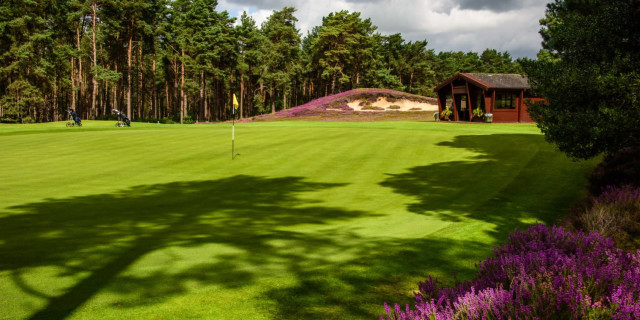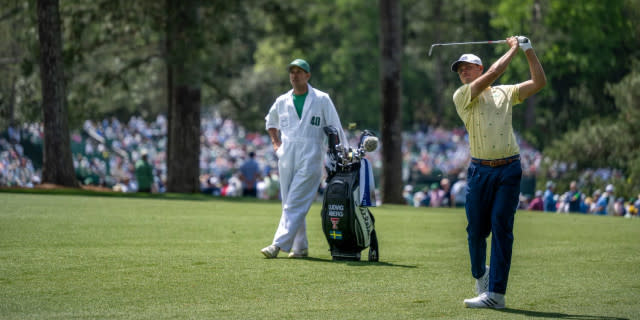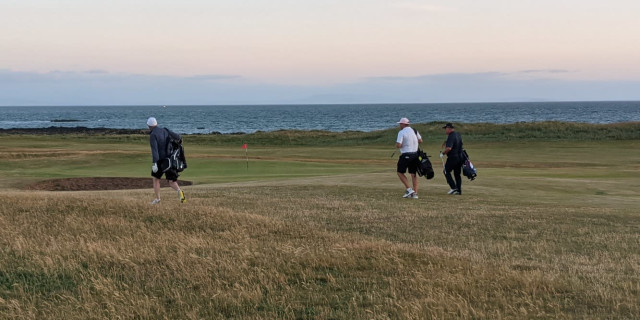
Slow Play Weekly Feature: Westport Golf Club
Continuing our features on 'What is the Most Effective Way to Combat Slow Play in Golf?' Nick talks to Paul O'Neill, a member at Westport Golf Club in Connaught.
At Golfshake, we are committed to drawing attention and proposing solutions to the Achilles heel of golf: slow play.
Solutions to rectify the contentious issue have been proposed, with the help of Golshake members and fellow golfers, in both the amateur and professional game.
Featured Content
But proposition can only get you so far, and unless we see golfing authorities - those controlling the major tours to those in golf club management - as well as members of the golfing public making a stand for the good of the game, the situation will never change.
For that reason, it is important to draw attention to efforts to rectify the problem and propose a solution, whether those efforts relate to the application of technology or ideas and schemes encompassing the human aspect.
This week, Golfshake speaks to Paul O'Neill from the Westport Golf Club in Connaught; a man who put forth a resolution to his committee this month to attempt to address the problem of slow play at his local club.
Unfortunately but not unsurprisingly, his motion was defeated. His explanations and insights into the proceedings reveal so much about the vast array of seemingly insurmountable hurdles that need to be crossed to rectify a problem that shows no sign of subsiding.
At Westport Golf Club, the majority of members recognise slow play as a problem. According to Paul, it is something that is constantly discussed on the course, in the clubhouse and outside the local church. Crucially, though, “no one seems to be anxious to discuss it at the only forum that matters.” That was until Paul proposed his motion for a local ruling.
What was the proposition?
At this month's A.G.M., Mr O'Neill put forth the motion that ‘Ready to Play’ should be immediately introduced. The premise is simple: if you are on the tee and you are ready to play, you play, regardless of your score on the previous hole. How many times have we waited around on the tee because our playing partner - who, frustratingly, has the honour - is eating a banana or taking an inconsiderate amount of time in locating something in his or her bag?
Responses to the Proposal
At the A.G.M., there were two different schools of thought offered. One member, off six, and a former constituent of the only club team to win a national title strongly supported the idea. He also proclaimed the virtues of putting-out on the green when it is your turn to avoid brainless scenarios when balls are marked within two feet of the cup.
The other response couldn’t have been more diametrically opposed. A four handicapper felt that if he had earned the right to tee off first, then he simply must be entitled to the honour. According to Paul:
“I got the impression that he would have contacted the R&A if my proposal was passed,” he said.
“As soon as the R&A was mentioned, the meeting lost interest and the proposal was defeated.”
Traditionalism
Some proposals fall into a grey area, and it is difficult to see a way out. Westport Golf Club is considered as one of the premier golf courses in Connaught by both the general golfing public and other courses in the vicinity. The trouble is that being so highly regarded in the local and wider community means that examples have to be set, and setting a good example means conforming to the laws set out by the sport’s governing body.
Golfing integrity is seen as synonymous with a devout adherence to the laws of the game and frankly, it is completely understandable. In a disastrous parallel, it more than understandable for those that are affected by slow play to want to change the situation. To that end, how can we combat the problem without change from governing authorities?
“Unless we got direction from the R&A via a change in the rules of golf, I can’t see them wanting to change, ever,” admitted O'Neill.
Slow golfers
I asked Paul about slow players at Westport, and what he thought was more important: initiatives like ‘Ready to Play’, or a change in mindset, attitude and recognition by slow players that they are damaging the game. His response was something that we can all relate to, and throws up even more cause for concern. If new legislation won’t come from the top, bureaucracy is the only way to implement change and slow players don’t recognise they are slow, are we not trapped with an inability to facilitate meaningful change?
“I'm afraid I'll see the Republic of Ireland win the World Cup before some of these guys that play slow recognise the fact that they are the problem,” he said.
The Solution
In response to my question about the best way to change the mindset of slow golfers and stimulate change, Mr O'Neill stated the club must take the initiative, with posters and quiz and information nights. I couldn’t agree more. Given the traditions of golf, new legislative provision on slow play is highly unlikely, and as such, it is imperative that change comes from the bottom up. How, though? A concerted effort from everyone involved in golf to draw attention to slow play and convey the fact that it has no place in the modern game. If this were the case, proposals like ‘Ready to Play’ wouldn’t be necessary, and constitutional changes wouldn’t be required. The sad fact, however, is that we are a long, long way from eradicating the problem, because evoking a fundamental change in mindset is the only way to secure long term improvement.
Read the part 1 introduction and analysis of the Pro Tours.
Read part 2 focused on Amateur Golf.
Tags: slow play









